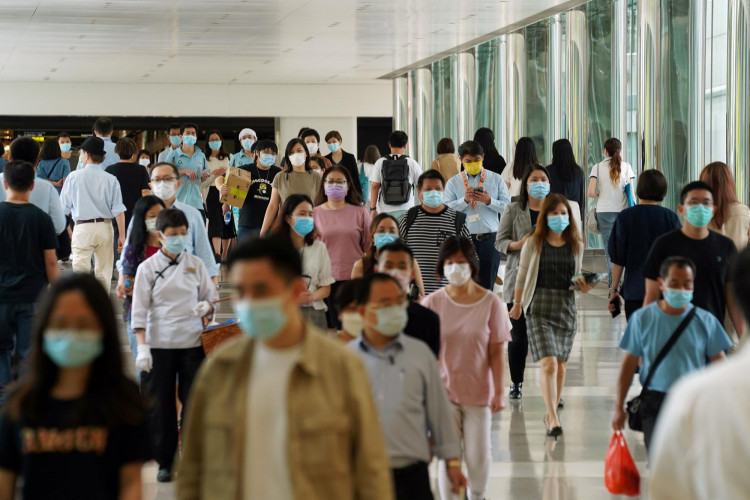The coronavirus problem in Hong Kong – once believed to have been contained – is again rising at an alarming rate, with a total of 100 new cases reported late Sunday, territory leader Carrie Lam announced.
Months earlier, Hong Kong made headlines for successfully preventing the virus from exploding in the densely packed city-state of 7.5 million people. But its caseload, while still manageable by European and American standards, has risen by a third to almost 1,800 in the past fortnight.
Throughout most of the past week, Lam has ordered pubs, gyms and nightclubs shut down, and on Sunday she introduced new rules including the compulsory wearing of face masks. The announcement comes just days after Hong Kong Disneyland was ordered closed again, less than a month after it reopened for business, as authorities reimposed social distancing protocols.
Lam said the highly contagious disease is spreading "out of control" in the city, with the new record infections.
As medical wards start to overflow, local health officials are also rushing to build 2,000 more isolation rooms on an unused property near Hong Kong's Disneyland resort to keep a tight watch and treat those who test positive of the virus, Lam added.
Hong Kong was already struggling financially when the coronavirus pandemic broke out thanks to the China-U.S. trade drama and months of political tension last year. The latest partial lockdowns in the city has only made the economic gloom even worse.
Worldwide, the number of confirmed COVID-19 cases has now topped the 14 million mark, based on data compiled by Johns Hopkins University. The global health crisis has claimed the lives of over 600,000 people since it was first reported in Wuhan, China, late last year.
Hong Kong officials said coronavirus testing will be accelerated, going after high-risk populations like cab drivers and restaurant employees after clusters were reported within their ranks. A number of the fresh cases have found their way through elderly care homes, a major cause of worry considering how lethal the disease is to older people.
Meanwhile, Chuang Shuk-kwan, director of Hong Kong's Center for Health Protection, cautioned during a media briefing Sunday that the local health infrastructure could collapse if the situation does not improve.






